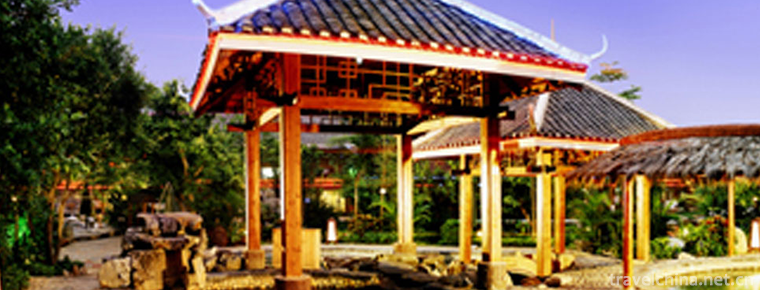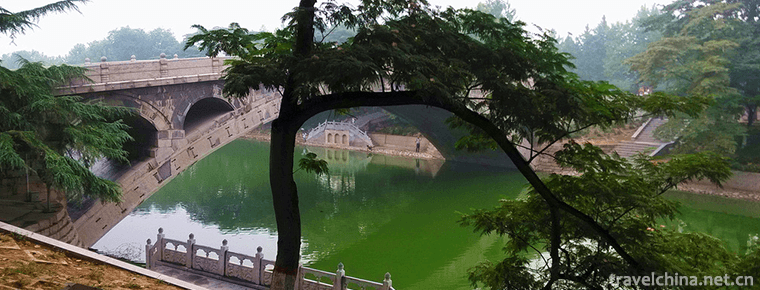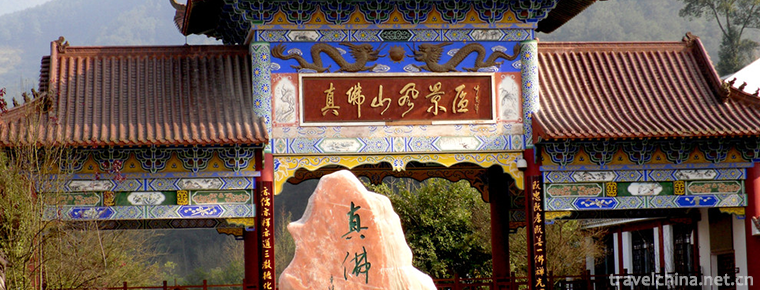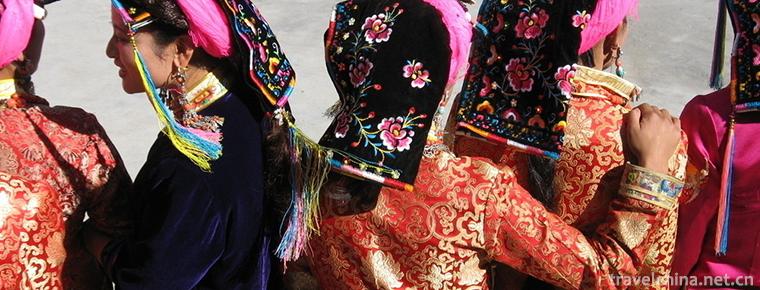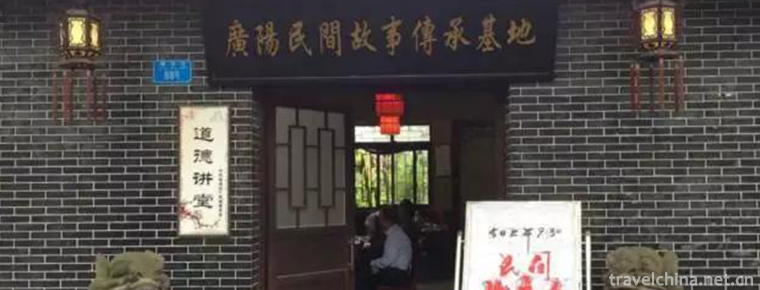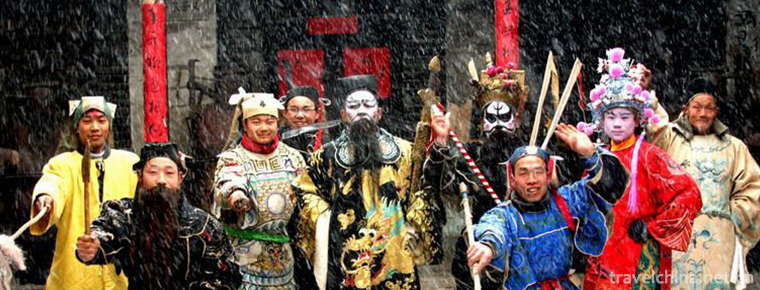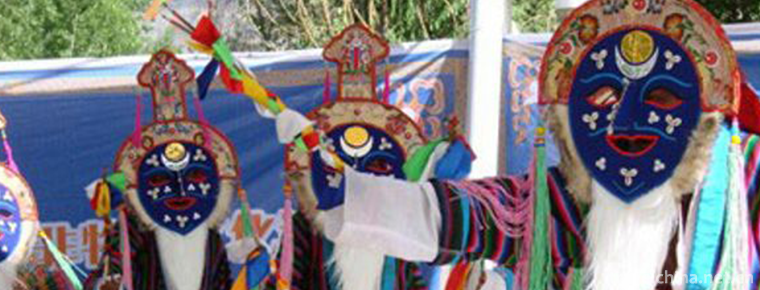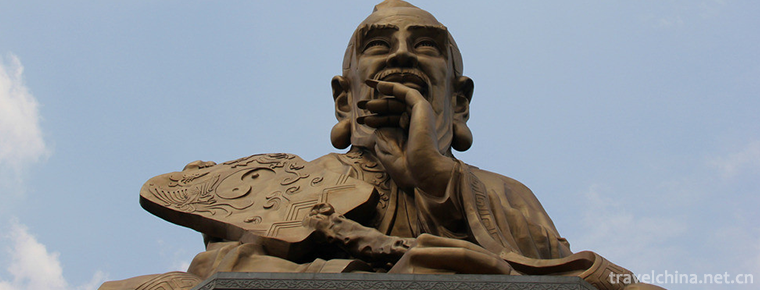Nanjing White Bureau
Nanjing White Bureau
Nanjing Baiju is an ancient type of music in Nanjing area. The "Nanjing tune" in the Yuanqu brand is the original tune of Baiju's ancient tune. It has a history of more than 700 years. It was formed in the Yunjin loom room at the end of Yuan Dynasty. Its prosperity and decline rose and fell along with the development and change of Nanjing brocade industry. It is a rap art with strong local characteristics, which is the most correct one. Zong's old Nanjing dialect in the south of the city sang folk songs of the Ming and Qing Dynasties and folk tunes in the south of the Yangtze River. It was blended into the tunes sung by the Qinhuai Geisha in Nanjing. Because of its numerous tunes and rich and colorful singing tunes, it is also known as "Baiqu".
Baiju belongs to the art of rap and singing in the form of joint melody. Most of Baiju's music cards come from folk songs of Ming and Qing dynasties and folk tunes of Jiangnan, which are rich in Jiangnan characteristics. The accompaniment of Baiju mostly uses silk and bamboo instruments of Jiangnan, such as Erhu, pipa, three strings, bamboo flute, etc., and then equipped with special percussion props such as plate drums, dishes and wine cups, which are very lively and interesting.
Baiju is in the same voice, performing one or two people, up to 35 people. The performance involves the beautiful scenery of Jinling, the delicacies of Qinhuai, historical legends, Festival folklore, dialect slang and other aspects of Nanjing people's life. It has the local characteristics of Jinling. It is known as the Encyclopedia of Nanjing folk culture. For the study of Nanjing dialect, the humanistic style. Vulgarity has a high historical contribution. 2007 was listed as the first batch of Jiangsu intangible cultural heritage list, June 7, 2008, was listed as the second batch of national intangible cultural heritage list.
Background
There are many opinions about the origin and formation of Nanjing Baiju, which can be roughly classified into three kinds: the theory of machine room generation, the theory of weaver singing and the theory of different kinds of Qingqu.
Generation Theory of Computer Room
First, it is said that during the reign of Qing, Qian and Jianian, the Nanjing White Bureau was born in the brocade industry in Nanjing. Because brocade workers work very hard all the year round, a form of entertainment and self-entertainment has emerged as the times require, which is also the embryonic form of Nanjing Baiju. The scene of brocade workers working hard at that time is vividly described in Chen's loud funny aftertaste of the Ming Dynasty: "The buttocks are restless, the feet are unbeatable. Half-length dungeons, beds and meals. When the festival is temporarily relaxed, the depletion should be paid back. Meridians often stay up all night, leaving shuttles until late. Will be the same pattern, a burst of acid sweat, boil a dry, close a nap eyes. It can be seen that the heavy brocade work, poor working environment, workers in the brocade weaving process, the top and bottom of the duet, song contest, or improvisation to create smooth lines, in order to relax their nervous mood. Most of the tunes they used were popular folk songs at that time. They sang a wide variety of songs. They sang whatever they wanted to sing. Some of them had pornographic elements, and the boss did not ask. Many of the singing days reflect brocade production, brocade workers and urban people's life content, such as "Yunjinjie", "Machine Room Bitter", "Picking Lupin" and so on.
Secondly, Nanjing Baiju is a folk rap art in Nanjing area. When the Yunjin brocade weaving industry was relatively developed in Nanjing, brocade workers were working and singing during heavy physical labor to eliminate fatigue and express their feelings. On the occasion of wedding and birthday celebrations, bonsai festivals or other traditional festivals in the neighbourhood, several singing brocade workers gathered together, set up a stage to rap and sing, and compiled their own performances. It is named Baiju because it "talks and sings without reward".
Thirdly, Nanjing Baiju is a kind of folk rap that uses Nanjing dialect to sing. It is popular in the main city of Nanjing, Liuhe, Pukou, Jiangning and Lai'an, Tianchang and other areas of Anhui Province. Nanjing White Bureau was created and developed by Nanjing silk weaving workers (Yunjin, velvet and satin). In the long and dull production of silk, they keep shuttling, singing ditties and entertaining themselves. From this kind of "singing in the computer room", and gradually using Ming and Qing folk songs and Jiangnan minor, it developed into a folk rap art with music plate affix and increasingly rich repertoire. Obviously, the tunes used by the Nanjing Baiju are basically the same as those of the famous tunes circulated in Jiangsu Province, and they still have the primitive colors of the folk songs of the Ming and Qing dynasties in the north and south of the Yangtze River and the Qin and Huaihe rivers. For example, its main tunes are Manjiang Hong, Chuanxin Diao, Number Board and Dressing Table.
Weavers are good at singing and speaking.
First, the performance of Nanjing Baiju was originally a form of entertainment for workers, family members, relatives and friends in Nanjing Silk Weaving Machinery Room. Later, it was often invited to perform at wedding celebrations and peony meetings. Because this kind of performance is not paid, it belongs to white singing, and each time it is called "swing a game" and called "white game".
Secondly, it is said that in the early years of Guangxu, the "paper-burning poplar" (a special funeral drumming class surnamed Yang) and other blowing classes in Nanya area of Liuhe, Nanjing, often played in Yanziji and Xiaozhuang areas, which were separated by a river, thus arousing the interest of brocade workers in Xiaozhuang area. Later, brocade workers formed a group to imitate and quickly created. "Xiao Shangshou", "Eye Meet Ten Langs" and other tracks, and very much appreciated by the audience. Later on, a number of repertoires were compiled and sung, and many popular music cards were absorbed, gradually forming a complete Nanjing Baiju rap and singing.
Thirdly, Nanjing Baiju is the art of rap and singing, which belongs to the category of folk art. It is different from Nanjing vernacular. Nanjing vernacular is mainly about telling stories and jokes, while Nanjing Baiju is mainly about singing ditties. Since the end of the Qing Dynasty, in the areas where workers gathered in Nanyun Brocade in the old city of Nanjing (along the Qinhuai River in Inner China), in spring, summer and autumn, in the streets and lanes, they could hear the singing of Yunjin workers after work. This kind of singing is to use the tune of Jiangnan folk song minor to express their feelings in their chest, to vent their dissatisfaction with the workers and owners of Yunjin Brocade Workshop, and also to sing the style of Nanjing. This form of performance is self-entertainment, when the performers sit around, because they can't pay for it. Therefore, this kind of performance is called "White Play".
Fourthly, Nanjing, the ancient capital of the Six Dynasties, has a long cultural history. Just as Beijing has a Beijing rhyme drum and Suzhou has Suzhou Tanci, Nanjing also has its own unique music, Nanjing Baiju. It is a kind of folk rap art with native growth, simple style and strong linguistic appeal. At first, the silk weaving workers in Nanjing, according to the social news and folklore at that time, used the Ming and Qing Dynasty folk music cards and Jiangnan minor to sing together. When singing, there are only one person and three or five people. They speak dialect and sing but sing songs. They are funny and lively, and they are easy to understand. Because each singing game is called "swing one game" and does not get paid, it is called "white game". In the old days, people could be heard singing Nanjing Baiju everywhere in the streets and lanes of Nanjing.
Fifthly, Nanjing Baiju is a kind of rap sung in Nanjing dialect. It is also the only native ancient ququ species in Nanjing area. It is still distributed in Liuhe, Pukou, Jiangning and Lai'an, Tianchang of Anhui Province, besides the urban area of Nanjing. According to the records of Nanjing Quyi Records, Baiju Opera originated from Liuhe Rural Blowing Team and grew up in Brocade Machine Room. It is the only native rap music in Nanjing. At that time, some rich people in the Liuhe area of Nanjing had to invite performers to add atmosphere to their wedding and funeral celebrations. Some performers sang folk tunes and Ming and Qing Danqu while playing rhythm, accompanied by Erhu musical instrument. As a result, the blow team has increased its popularity in the local area. Because all the songs are based on Southern Jiangsu and Northern Jiangsu minor and blended into the tunes played by Qinhuai geisha, they have many tunes and rich and colorful singing tunes, so they have the name of "hundred tunes". When "Baiqu" (Baiqu) was exiled from the countryside to the urban area, Nanjing had 200,000 brocade workers. They first accepted "Baiqu" and depicted the tragic situation of the mechanics through the rap of "Baiqu". The best proof of this is the bitterness of the traditional track room of Nanjing Baiqu.
Inheritance Significance
Nanjing White Bureau is mainly spread in the south of the Yangtze River. It has a large mass base and a long history, so it has unique cultural value. Nanjing Baiju is the artistic sublimation of Nanjing dialect. The essence of Nanjing dialect runs through Baiju's rap art. To some extent, it is the cultural carrier of inheriting Nanjing ancient dialect and ancient Chinese. It has a unique role for modern people to learn the pronunciation and grammar of ancient Chinese.
In ancient times, Nanjing Baiju played a role of contemporary news media to some extent, even its influence was more profound and extensive than that of modern media. It was an important information carrier for people to understand Nanjing's customs, culture and historical society. Thirdly, Baiju has drawn lessons from the styles of Yangzhou Qing Opera and Ming and Qing Folk Opera in its development and evolution, so it has important reference value for studying the culture of other operas. Baiju, with its local characteristics, is known as the Encyclopedia of Nanjing folk culture, which covers the beautiful scenery of Jinling, the delicacies of Qinhuai, historical legends, festivals, folk customs, dialects and slang and other aspects of Nanjing's life.
artistic value
Nanjing Baiju is the "living fossil" of the old Nanjing culture and the "dialect warehouse" of the old Nanjing. Its humorous language performance and unique performance form are of great cultural value for the study of the historical evolution of Nanjing language.
Baiju's performances cover the beautiful scenery of Jinling, the delicacies of Qinhuai, historical legends, Festival folklore, dialect slang and other aspects of Nanjing's life. They have the local characteristics of Jinling and are known as the Encyclopedia of Nanjing folk culture. They have made great historical contributions to the study of Nanjing dialect and human customs. In the process of its spread, Qingqu, a new variety, was left in Yangzhou.
Xu Chunhua, the representative successor of Nanjing Baiju, once said that the stories of the people are told by the people. The reason why the Baiju can be spread for hundreds of years is that the people like it, so it can be spread. It has vitality, that is, folk, the more folk, the more vitality.

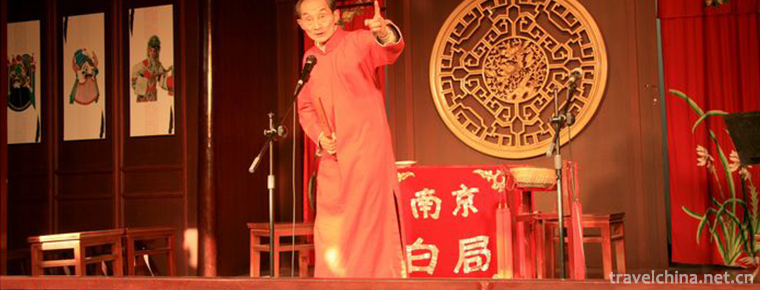
-
Songhua Lake Scenic Area
Songhua Lake Scenic Spot is a famous tourist attraction in Jilin Province. It is a national AAAA level scenic spot (AAAAA is being declared). Located in the southern suburb of Fengman District.
Views: 106 Time 2019-02-13 -
Sunan Wenshu Temple Scenic Spot
The Sunan Wenshu Temple scenic spot is located at the foot of the Suzhu Chain, the main peak of Qilian Mountain in Sunan County, Gansu Province. It is a national key cultural relic protection unit and.
Views: 169 Time 2019-02-13 -
Zhaozhou Bridge
Zhaozhou Bridge, also known as Anji Bridge, is situated on the Juanhe River in Zhaoxian County, Hebei Province. It spans more than 37 meters across the river. Because all the bridges are built of ston.
Views: 178 Time 2019-03-17 -
Zhenfoshan Scenic Spot
Zhenfoshan Scenic Spot, National AAAA Class Tourist Scenic Spot, Provincial Scenic Spot and Provincial Key Cultural Relics Protection Unit are the "Three Religious Holy Places" integrating B.
Views: 135 Time 2019-03-17 -
Tibetan costume
Tibetan costumes Tibetan men's clothes are divided into three categories: labor dress, superfluous dress and warrior dress. Women's clothes change greatly in festivals, major events in life and etique.
Views: 201 Time 2019-04-05 -
Folk Stories in Guangyang Town
"Guangyang Folk Stories" is the general name of folklores and stories widely spread in Guangyang Town. Guangyang folk tales are popular in the local area..
Views: 188 Time 2019-05-01 -
Match show
Sai opera is an ancient opera which has been spread in Shanxi, Hebei, Inner Mongolia and Shaanxi. It is a traditional literary form with strong local characteristics of frontier fortress. Sai opera wa.
Views: 132 Time 2019-06-12 -
Shannan Menba Opera
Because Shannan Menba Opera directly adopts Tibetan scripts of Tibetan Opera, it is called "Menba Aguiram" by the people, that is, Menba Tibetan Opera. Legend has it that at the end of the 1.
Views: 156 Time 2019-06-13 -
Lao Tzu
Laozi, surnamed Li Minger, is a character of Bai Yang, or posthumous Bo Yang. In the late spring and Autumn period, the birth and death years were unknown. About 571 years ago, it was born in the late.
Views: 194 Time 2019-09-04 -
Corn and sparerib soup
Corn and spareribs soup is a tonic soup, the main ingredients are corn and spareribs, the main cooking technology is stew. Corn can reduce the blood cholesterol concentration and prevent it from depos.
Views: 329 Time 2020-03-16 -
International cooperation of Chengdu Giant Panda Base
According to the major political and diplomatic needs of the country, under the leadership of the state, provinces and cities, the panda base has successively established a "long-term international cooperative breeding program for giant pandas" with Japan, the United States.
Views: 112 Time 2020-12-13
